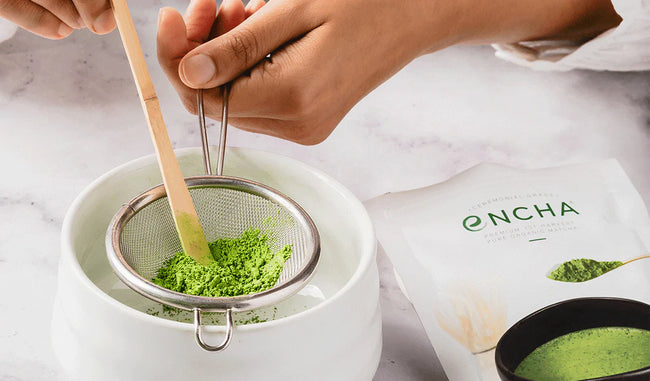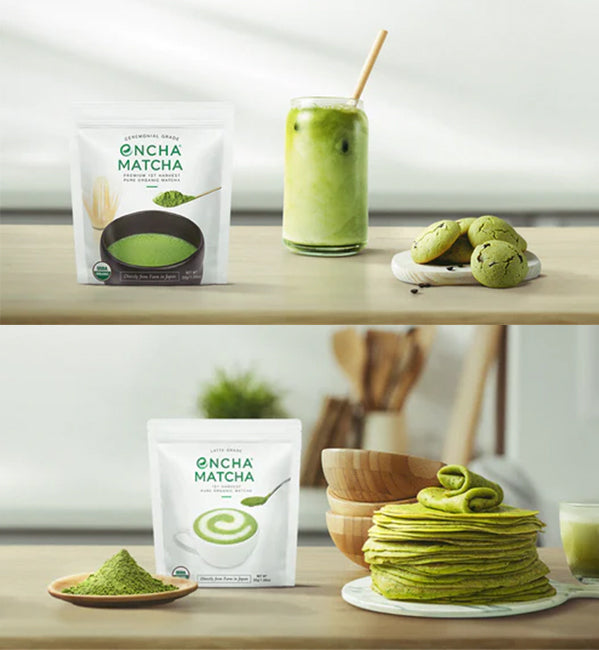Ceremonial vs. Culinary Grade Matcha:
Matcha comes in various grades, with ceremonial and culinary being the most common. Ceremonial grade, crafted from shade-grown leaves, boasts a vibrant green color and a mellow flavor with a lingering sweet aftertaste. Culinary grade, ideal for cooking and blending, has a more robust taste, making it versatile for matcha lattes, smoothies, or cold-brewed matcha tea.
Ceremonial matcha, prepared in a traditional Japanese tea ceremony, unfolds a mild and earthy taste, with no bitterness. The flavor is distinctive, striking a balance between vegetal and sweet, often leaving a delightful umami sensation on the palate.
While the best matcha shouldn't taste bitter, it might have a hint of astringency. This characteristic is more pronounced in lower quality or poorly prepared matcha. Properly whisked matcha should showcase a smooth and mellow flavor that dances on your taste buds.
As a form of powdered green tea, matcha offers a unique flavor profile compared to traditional green tea leaves. While regular green tea involves steeping leaves, matcha is the entire tea leaf ground into a fine powder, providing a more concentrated taste.
Comparisons To Other Beverages
Sometimes it can help to know how similar or dissimilar something is to other drinks, to help to give you a sense of what to expect. We have already mentioned that you can expect a certain bitterness that is a little like good quality coffee, but that is really only part of the flavor profile of matcha tea. It also has some of the earthiness of certain other teas. While there is no smokiness as you would have in a lapland souchong, for instance, the earthiness itself is very similar between the two.
And with the naturally sweet, grassy flavors you often have with matcha (more so if you like to have it with a dash of honey or something similar) it can also have tones similar to traditional green tea or coffee. However, matcha provides you with far more proven health benefits that you are not going to get from any other beverage.
Matcha Texture
As you probably already know, the texture of something is a huge part of how it actually tastes for you, so it’s good to know about this as well. And the texture of matcha is actually pretty unique. It’s also highly significant to how you are going to enjoy it, because there are a few different preparation methods for matcha that you need to know, and knowing how this affects the texture and therefore the taste can be quite important to the end product you experience.
In general, however, matcha has a slightly grainy and leaf-like texture. It’s usually quite thick compared to other teas and coffee, and can sometimes be prepared to be more like a green smoothie. However, it can also be made much thinner than that. So it does really depend on how it is being used and prepared. The best matcha powders are stone ground which give them a very fine grind and preserves more of the flavor.



